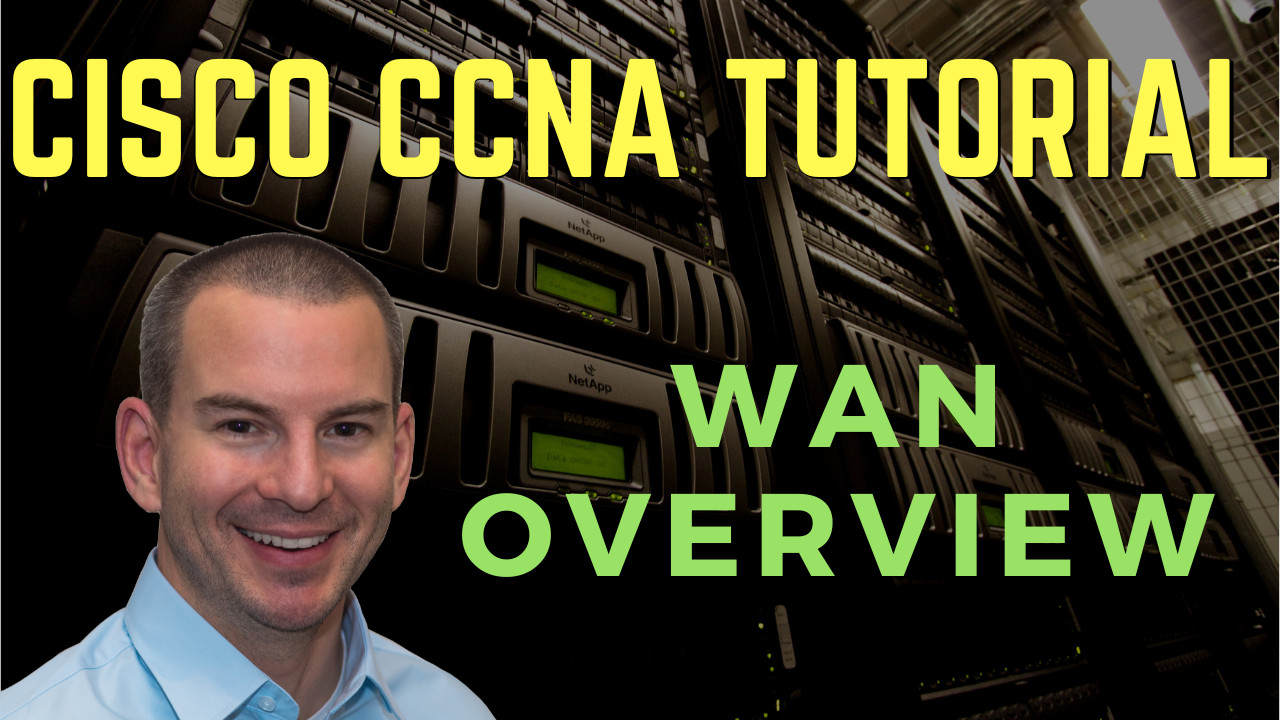
In this Cisco CCNA tutorial, you’ll learn what Wide Area Networks are and how they compare to Local Area Networks (LANs) and Metropolitan Area Networks (MANs). Scroll down for the video and also the text tutorial.
Cisco Wide Area Network (WAN) Overview Video Tutorial

Eugene Ochieng

I want to say THANK YOU for the course. It was really helpful in attaining the Cisco CCNA 200-301 certification.
LAN, WAN, and MAN Definitions
A Local Area Network (LAN) is a network that connects computers and other devices in a relatively small area, which will typically be a single building or a group of buildings.
So if you have a company and own a building, the internal connections for that building is the Local Area Network. Or maybe it's a university campus that is spread out over several buildings, but all in the same small area. That would also be a Local Area Network (LAN).
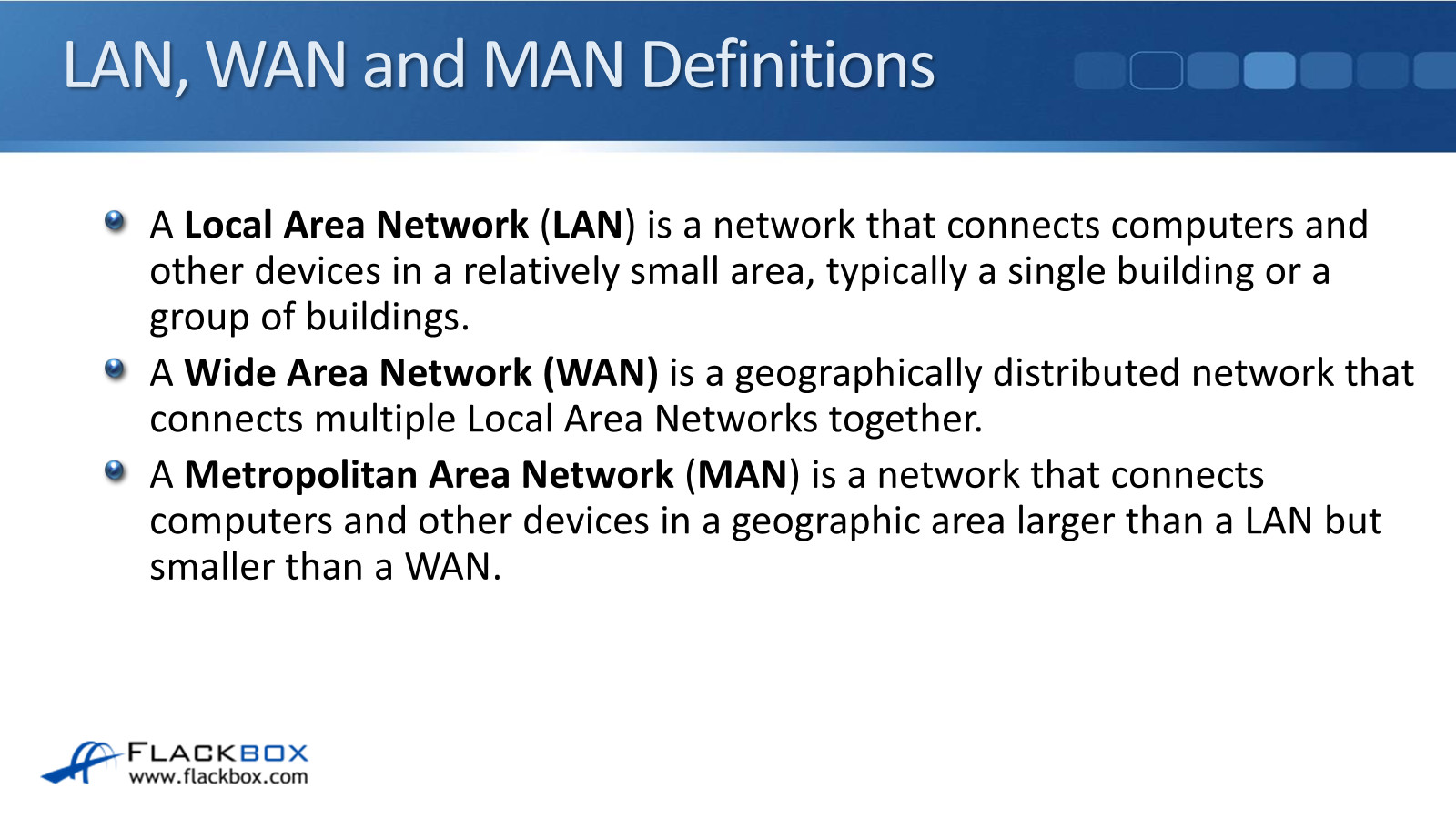
A Wide Area Network (WAN) is a geographically distributed network that connects multiple Local Area Networks together. So if we’ve got a company, and got an office in New York, we’ve got a LAN in New York. We’ve also got a building in Boston, so that’s our LAN in Boston.
We want New York and Boston to have connectivity to each other. What we would need to have is a Wide Area Network to connect them together. That is our WAN.
The other type of network that you’ll hear about is Metropolitan Area Network (MAN). This is a network that connects computers and other devices in a geographic area larger than a LAN but smaller than a WAN.
If you’re at a university campus and it’s all in one campus, that would be a LAN. But if there’s a university and they’ve got their main campus, which is in New York, and maybe they’ve got a smaller campus, which is five miles away also in New York, so within the same city, and they connected those two campuses together, each campus would be its own LAN.
The connection that connected the two campuses together would make up a Metropolitan Area Network (MAN). Now, you won’t hear MANs being used so much, the definition, as you do with the LANs and WANs.
That scenario there where we have two campuses within the same city, and we connected them together, you could describe that either as a WAN, or you could describe it as a MAN as well. The term MAN is not so commonly used.
LAN Design – Collapsed Distribution and Core
The LAN network below is for a small building. We’ve got a collapsed Distribution and Core layer, so we've got redundancy here. We’ve got a couple of redundant routers, which connect to the Wide Area Network, which connects to our other offices.
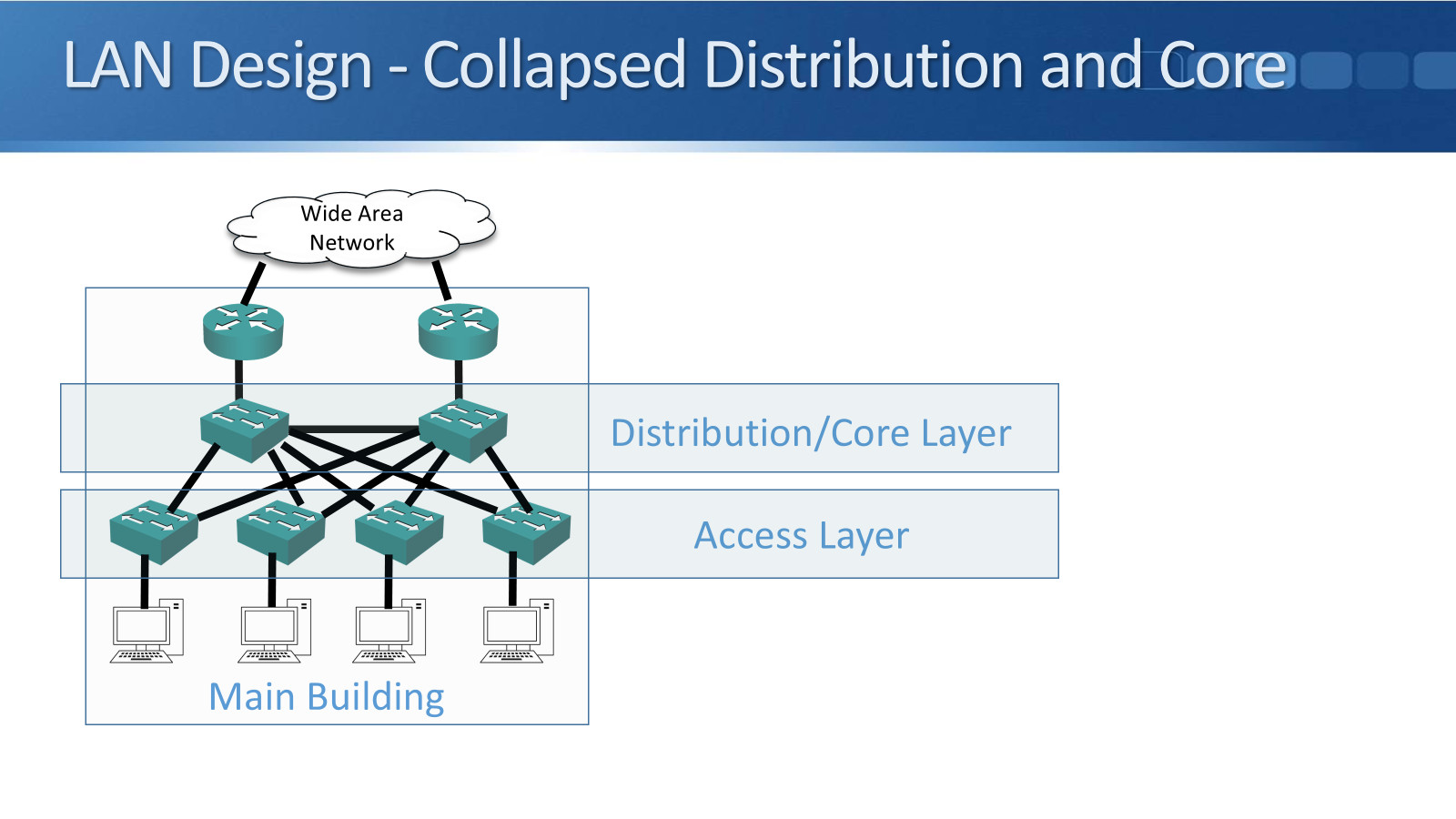
Also, we're going to want to connect to the Internet as well, and that goes down to a pair of redundant Distribution and Core layer switches, and then that goes down to our Access layer, where our end users get plugged into the network.
Campus Design – Core Layer
We can also have the Core, the Distribution, and the Access layer split out into three separate areas. What you see here, this would be for a larger Local Area Network.
We’re still going to have our routers on the outside here connecting us to the WAN. That was then a pair of Core layer switches that goes down to a pair of Distribution switches, which are each in different buildings on the campus, and then again, we have our end hosts connected in at the Access layer.
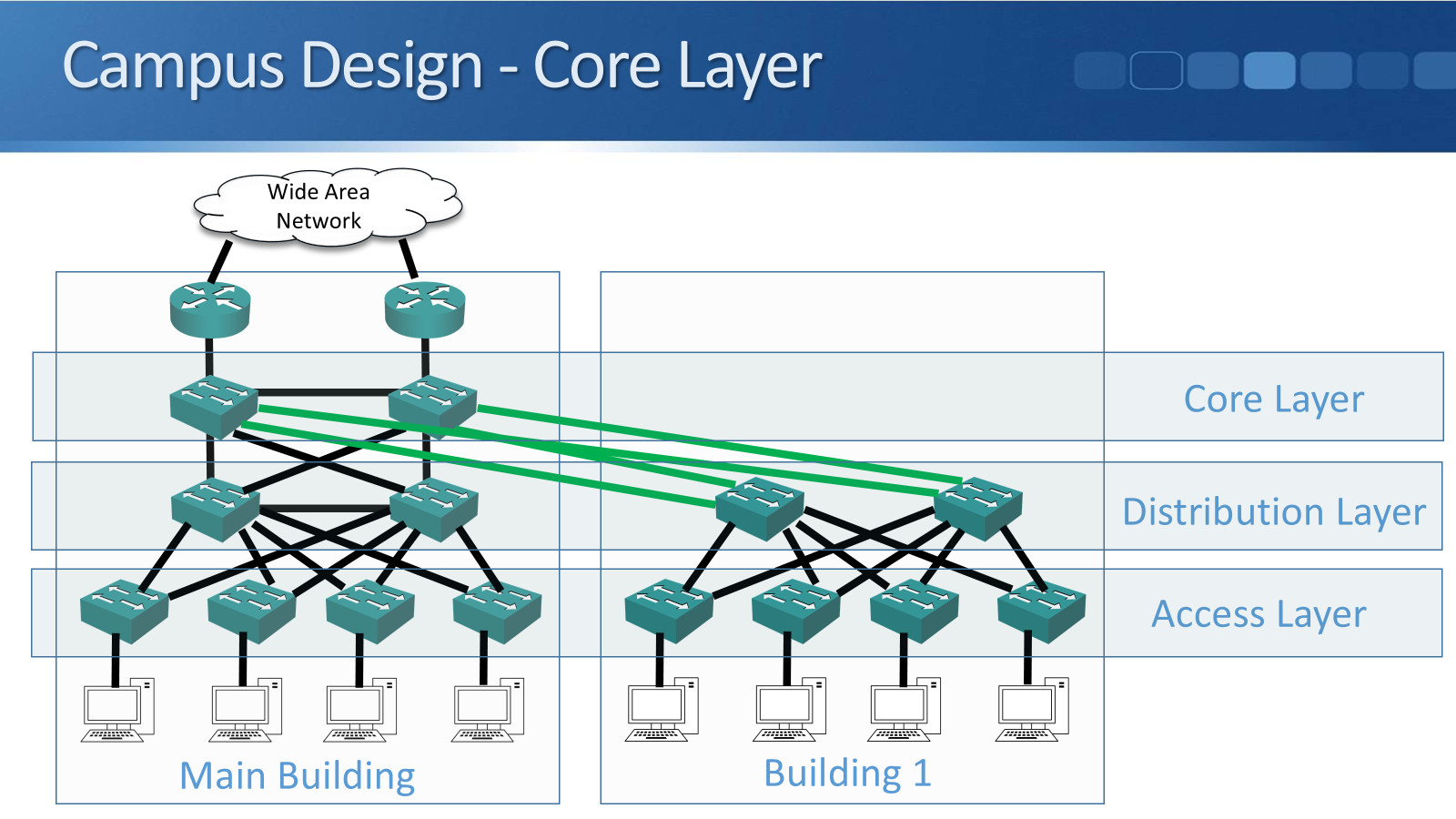
Wide Area Networks
For our Wide Area Networks (WANs), that’s just where we connect our different Local Area Networks together. So, we've got a LAN in New York, and we've got a LAN in Boston. We connect them together so that our users have connectivity across our different sites, and that is our Wide Area Network.
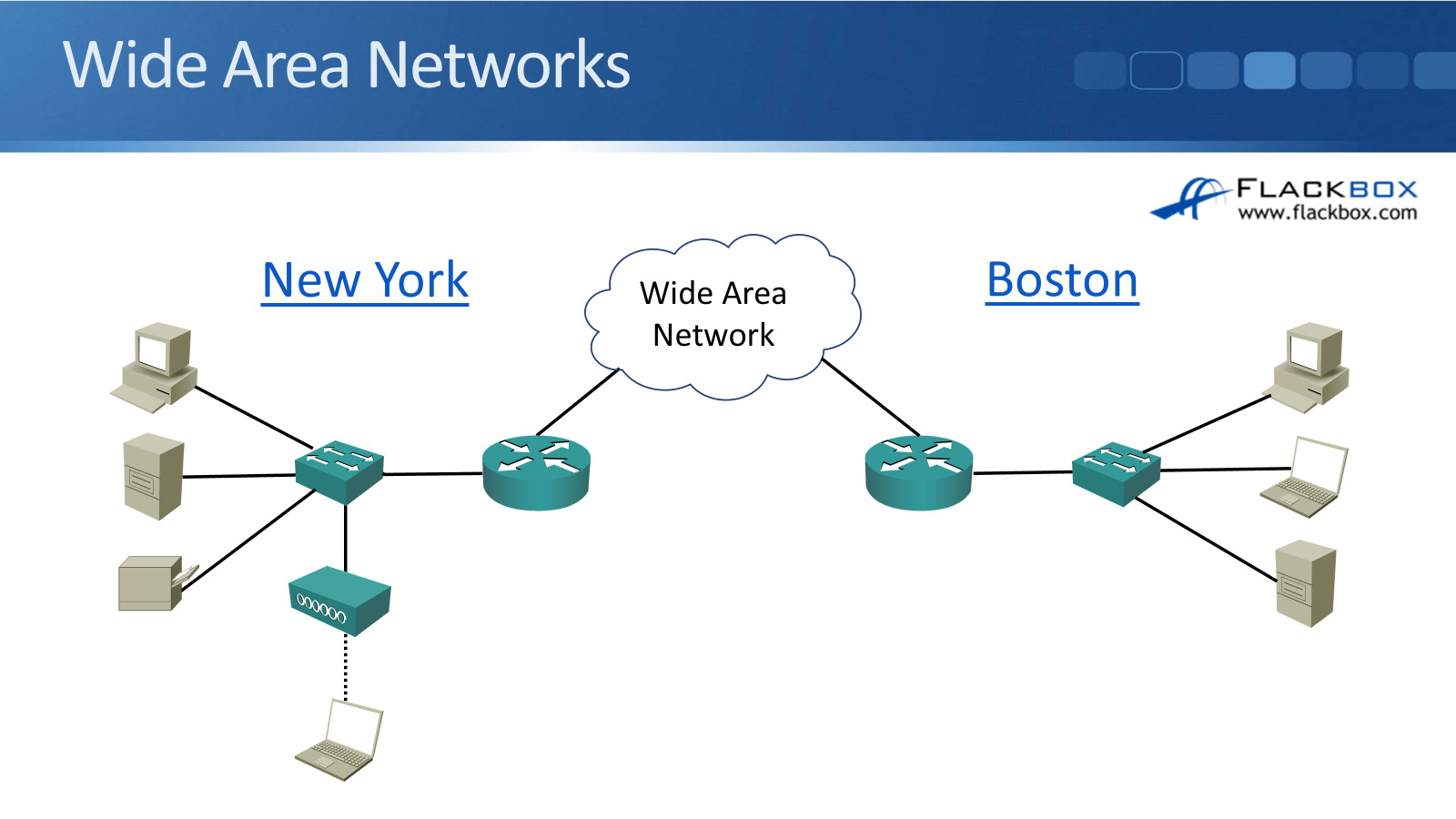
Additional Resources
What Is a WAN?: https://www.cisco.com/site/us/en/learn/topics/networking/what-is-a-wan-wide-area-network.html
Wide area network: https://study-ccna.com/wide-area-network/
WAN Concepts: https://www.ciscopress.com/articles/article.asp?p=2832405&seqNum=4
Libby Teofilo

Text by Libby Teofilo, Technical Writer at www.flackbox.com
Libby’s passion for technology drives her to constantly learn and share her insights. When she’s not immersed in the tech world, she’s either lost in a good book with a cup of coffee or out exploring on her next adventure. Always curious, always inspired.